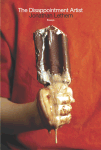1.8.05
"MEANING IS NOT IN THINGS BUT IN BETWEEN THEM"

I can’t help finding all this somewhat trivial or escapist (even when, objectively speaking, some of it really is not) in light of the Supreme Court/PATRIOT Act, etc., etc. situation here at home, and London’s unspeakably saddening and frightening experience of terrorism. I can only offer as feeble excuses the intermittency of my posts here, and the fact that much of this was written before those events. With that in mind, here goes…

The gauntlet of NTR150 has now successfully been run by yours truly: this quarter’s load of two simultaneous classes (ENG101 and BIO100) is no match for the rigors of Human Nutrition, and my summer is shaping up to be, all things considered, a more or less laid-back one, the credit for which goes at least partly to the online format of the writing/composition class. Reading and critiquing essays is much more up my alley than the “hard sciences” (which, by the way, are so much less hot than their hardness would seem to indicate; believe me, psychology and sociology, the “soft sciences,” are much sexier).
Some scattered bits and pieces, by category (and some, I should warn you, have been festering in rough draft literally for months; this is really a hodgepodge):
Film

--Chris Terrio’s Heights is a lovely, moving specimen of one of my favorite cinematic subgenres—the investigation of upper-crust urban neuroticism that Woody Allen used to do so much more consistently well, as in Manhattan, Hannah and Her Sisters, and Husbands and Wives. The cast is wonderful, the filmmaking intuitive and engaged, and the characters finely and generously observed (the cast includes Glenn Close, Eric Bogosian, George Segal, with cameos from Isabella Rossellini and Rufus Wainwright, and a cast of lesser-known younger actors, including Elizabeth Banks, James Marsden, and Jesse Bradford, in the main parts). In what I hope is not a preview of any dirty-old-mandom to come, I found Bradford, in the role of a soulful, slightly scruffy-bohemian actor who gets the short end of the stick in work and romance, to have appeal that extended far beyond his not-inconsiderable acting talents. Anyway, the movie is well worth your nine or so bucks.
--An assigned reading of William J. Mann’s Edge of Midnight: The Life of John Schlesinger was quite a disappointment after that author’s much more rigorous and informative Behind the Screen; How Gays and Lesbians Shaped Hollywood 1910-1960-- you can read all about how bad it is in my review, which should run in Just Out sometime in the foreseeable future. In the meantime, I tried to console myself by finally renting Schlesinger’s last appealing film yet to be seen by me, Cold Comfort Farm, starring Kate Beckinsale, Stephen Fry, Ian McKellen, and Joanna Lumley. The plot: A plucky, Jane Austen-loving postwar Pollyanna (Beckinsale) takes a break from her novel writing aspirations to systematically rescue her entire eccentric rural assortment of distant relatives, including McKellen’s fire-and-brimstone Bible-thumper, from their dilapidation and mediocrity. It’s terribly benign, certainly not as bad as The Next Best Thing (what is that bad, though?), but nowhere near the league of Billy Liar or Sunday, Bloody Sunday. I suppose I should’ve gone for his Day of the Locust or Far from the Madding Crowd instead. Oh well, next time I'm in a Schlesinger mood.
--An impulsive revisiting of a couple of movies revealed to me that Maggie Gyllenhaal and Frances McDormand are better than their very enjoyable and nicely done independent films with botched endings: Secretary and Laurel Canyon, respectively (the former significantly more so than the latter, the mismatched ending of which seems more understandable in light of auteur Lisa Cholodenko’s submission, in the DVD’s audio commentary, that she intended an open-ended, Five Easy Pieces-like non-conclusion).
--Ingmar Bergman’s Saraband is stunning; a rich, beautiful and fully realized film that makes the most of Bergman’s trademark intimate formalism. It’s a quasi-sequel to his 1974 miniseries, Scenes from a Marriage, and in some ways it surpasses that very good and very popular earlier work.
Books

--For review purposes, the above-mentioned Edge of Midnight (poor) and Peter Parker’s Isherwood: A Life Revealed (excellent). 50 Essays and From Critical Thinking to Argument; you can guess to what end I might be reading titles like those. Also, J.T. Leroy’s Sarah, chosen for my curiosity over its wide acclaim and its relatively short length, which holds out some hope that I might be able to finish it by reading a few pages here and there between assignments.

--Jonathan Lethem’s The Disappointment Artist. Lethem is the most literarily autistic of his group of bright young novelists (I include in this group Jonathan Franzen, Michael Chabon, Rick Moody, Dave Eggers, and Jeffrey Eugenides): His Big Novel, The Fortress of Solitude, is an appealing mess with a theme (the relation of art-obsessiveness, in both novel’s cases comics-obsessiveness, to life) similar to Chabon’s much less uneven and more accomplished Kavalier and Klay. Likewise, The Disappointment Artist is a mixed bag of surefooted, enjoyable reflections on art and pop culture (especially “The Beards,” a hybrid of autobiography and musical/cinematic reminiscence that I enjoyed immensely when it ran in The New Yorker last year). Lethem’s prose can degenerate into an autistic-obsessive, overly insular “fanboy” obsessiveness that orbits dangerously close to reading like something written by the Comic Book Guy from The Simpsons. But then he comes up with resonant gems like, "I was in fearful denial of my own childish neediness. I wished to be an adult in order to be forever spared sympathy or condescension, which reminded me too starkly of my helplessness,” and the moments of shameless geeking out are forgiven.
Music

For some reason, summer always seems to heighten my receptiveness to—and willingness to seek out—new music. This could partly be due to any enjoyment of the great outdoors on my part being contingent upon having plenty of headphone fodder to make being outside bearable (I have had an iPod-like manner of dealing with this situation ever since the old, old days, when our iPod was this clunky contraption called a Walkman).
Anyway, 2004’s all-summer-long long-playing selections (which, if you’ve been following along, you’re probably already more than sufficiently aware of) were Morrissey’s You Are the Quarry and assorted b-sides from that album’s singles, as well as Franz Ferdinand’s self-titled debut, The Killers’ Hot Fuss (though I still find that title fairly dubious—couldn’t they have come up with something more indicative of the swooning, vertiginous, dramatic crunch of their music?), The Thrills’ Let’s Bottle Bohemia, and The Ordinary Boys’ Over the Counter Culture.
This year’s picks are shaping up to be more bountiful than they first appeared, with the earth-shatterer being, of course, the debut album of what has to be considered a neo-“supergroup,” The Tears. It’s the reunion of singer/lyricist Brett Anderson and guitar-god/master of all things musical Bernard Butler from that preeminent band of my nineties experience, the incomparable Suede. The album brings to beautiful fruition Butler’s latter-day Phil Spector-isms run through the glitter-rock grinder (for which he has never had even close to adequate lyrics) and Anderson’s dirty-romanticism poetics (for which, on Suede’s last album, he didn’t really have music this powerful or accomplished). Every track except “The Asylum” is brilliant, but my personal favorites as of my hundredth or so listen are, in order: “Apollo 13,” “Autograph,” “A Love as Strong as Death,” “Lovers,” “Two Creatures,” and “Brave New Century.” The b-sides of the singles are essential, as well, but if you have to pick only one, make it “Song for the Migrant Worker,” off of “Lovers.”
A smaller but also trenchant pleasure is The Kaiser Chiefs’ Employment. It has its bright moments and its weak moments, but there’s energy and sass to spare, with those qualities most worthily manifesting themselves in “I Predict A Riot,” “The Modern Way,” and “Saturday Night.” Best of all to my ears is “Time-Honoured Tradition,” which comes very, very close to giving Blur’s old Kinks fetish a run for its money.
Subscribe to Comments [Atom]
